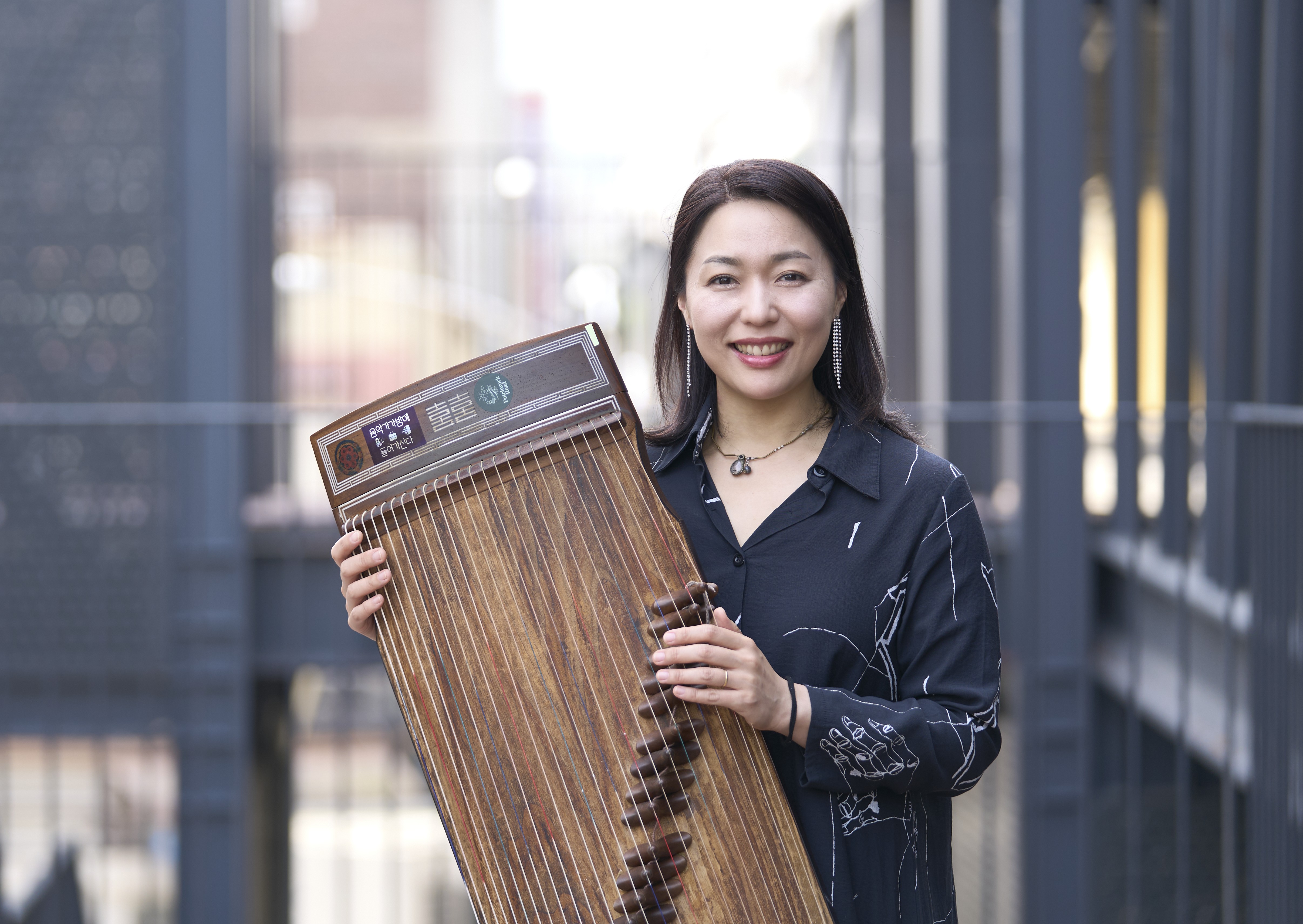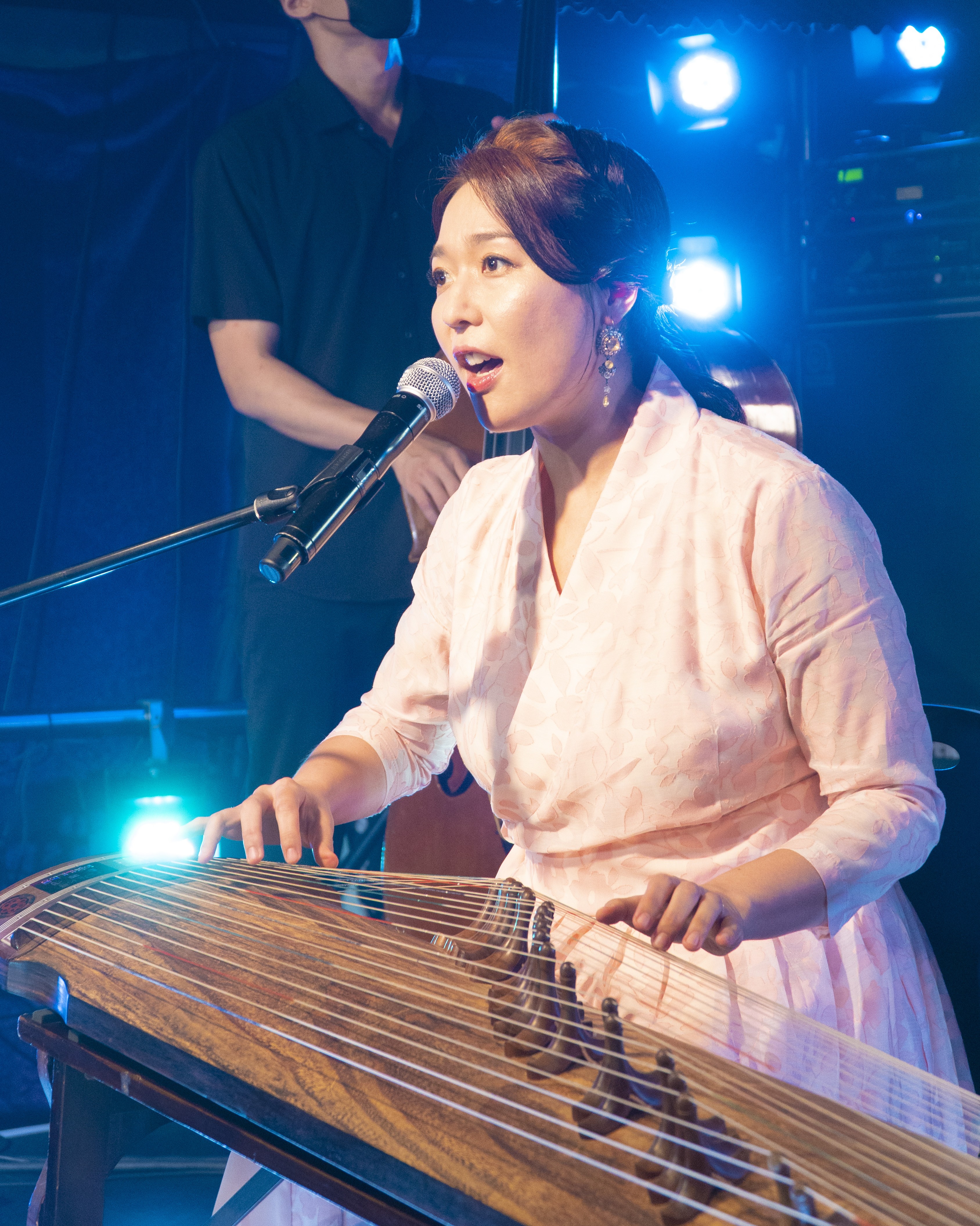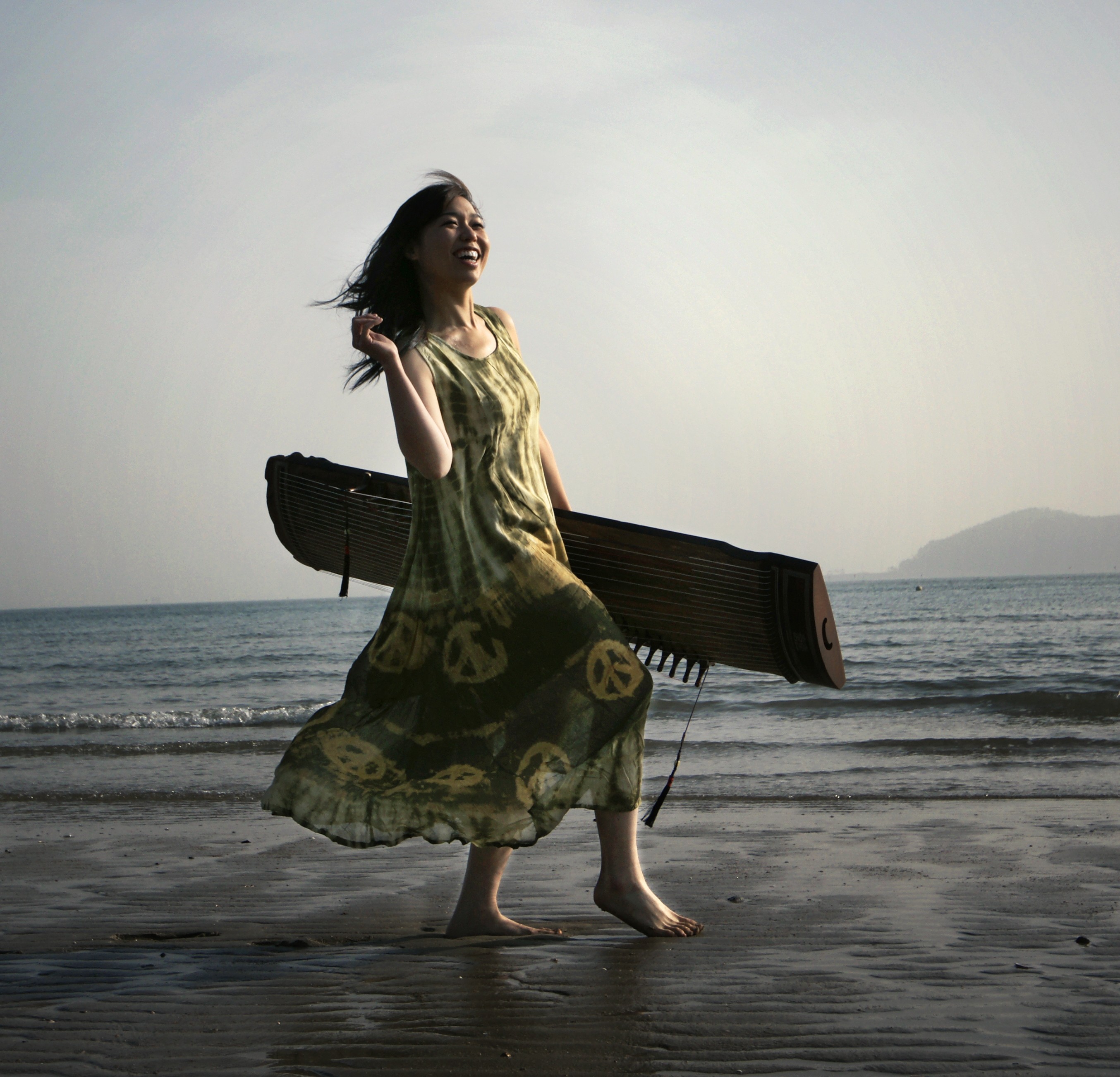In recent years, the realm of Korean music has expanded significantly beyond familiar styles, continuously evolving as artists reinterpret tradition through fresh, contemporary voices. Within this rich musical landscape, one artist stands out with a nearly twenty-year career that bridges tradition and modernity with remarkable depth: Jung Mina. Her ability to carry the essence of traditional Korean music into contemporary spaces is both unique and compelling.
This interview explores the journey of a pioneering gayageum player, singer-songwriter, and self-coined "Gayagmer. Currently, Mina is based in Cheonho-dong, Gangdong-gu, Seoul. She and her husband run a small performance space, "Space Turtle," also located in Cheonho-dong. She mainly organizes performances and performs here.
The interview was conducted via e-mail from October 25th to November 17th.
Q1. Could you introduce yourself and explain how your passion for music began? What led you to choose the gayageum and dedicate yourself to traditional Korean music?
I'm a gayageum player, singer-songwriter, and music director, Jung Mina, the one who coined the new word "Gayagmer." It began attracting attention in 2004, centering on indie live clubs near Hongdae. Released in 2006, my first full-length album, "Sangsaemong," was introduced to many media outlets, and sold more than 10,000 copies. I consistently produce music with deep lyrics and mature voices.
From my second full-length album [Oasis] to my third full-length album and fourth full-length album [Moment of Humanity]. I agonize over creating "easy but never-before-heard music." My songs, which sometimes criticize society and reality, and sometimes console the tired, contain warm and loving eyes on an alienated life.
There was gayageum on my path, and it suited me, and I got to choose.
In 8th grade, I discovered the Gayageum by chance and instantly fell in love with it, dedicating hours to practice. Though my skills were recognized, I struggled with auditioning for a Korean orchestra. During college, I sold tickets at racetracks and later worked for a telecommunications company while also teaching and working part-time at a convenience store.
I continued my music studies, teaching myself to play drums and learning to play guitar, bass, and piano. My first job as a cashier at an indie club called "Orange Fox" in Anyang, after the owner noticed me playing the Gayageum, marked my transition from a traditional Korean musician to an indie artist.

Q2. The gayageum has been closely tied to the music of royal courts; what obstacles did you encounter when introducing it to the indie/fusion genre, and how do you balance its classic integrity with innovation in your music?
From a musical perspective, Gugak is in the form of a "union." Most of them are "melody" music, which is called "garak." There is almost no harmony. To bring it into popular music, I needed knowledge of "Hwasong (harmony)." To this end, I learned a few instruments (piano, guitar, bass, and drum, etc.) at the Institute of Practical Music, and based on my understanding of the rhythm and harmony of Western popular music, I incorporated the gayageum.
The traditional 12-string Gayageum has difficulty creating harmony, but I usually use the 25-string Gayageum because the 25-string Gayageum can implement the code. Like a singer-songwriter who sings while playing guitar, I have established myself as a singer-songwriter who sings on the Gayageum.
Also, from a cultural point of view, the instrument 'Gayageum' has a bias towards the 'past.' It has a view as if looking at historical relics in a museum. However, all the songs I make are in the present tense. It includes the anecdotes I experienced while working part-time, the social reflections I had during the 2014 Sewol ferry disaster, the stories of women, and the small comforts and wishes that I feel in my daily life.
That's why I feel a little disconnected from the stage where I stand in the part where I make "a song that uses gayageum but reveals the present." There's also a little bit of loneliness that doesn't belong anywhere in the middle, not in popular music, not in traditional music.
Q3. In what ways do your experiences with Western music theory and jazz influence the emotional expression found in Gugak when you compose music?
In a way, I also play the role of an interpreter. Those who majored in Korean traditional music can't understand Western rhythms and harmony. Western music majors forming a band struggle to understand the rhythm of traditional Korean music and the composition of each region. I can customize the two languages for each performer. For example, I explain the Jajinmori rhythm by comparing it to a shuffle or swing, and explain the major-minor composition in Ujo or Gyemyeonjo.
I don't try to put in the unique emotional expression of Korean traditional music on purpose. There are times when you try to express it on purpose, but it becomes tacky. I believe my voice as a major in Korean traditional music, along with the sound of the Gayageum, gives it a distinctly Korean feel. No matter how much I play a jazz solo, I think the unique sound of the Gayageum's instrument has a Korean feel.
Q4. What inspires your lyrics? Do you focus more on your personal experiences, draw from cultural memories, or explore abstract emotions?
The lyrics are influenced by everything in life. I frequently take notes of personal events and life aging processes, social phenomena and events, experiences as a woman, and parenting that catch my mind. However, I try not to think, "I know everything." Sometimes I think that my prejudice is the answer to the world. I try not to think so.

Q5. Do you perceive your music as a means of connecting not only diverse genres but also different generations and identities?
I'm not sure about that. I'm just doing what I'm doing. I'm just grateful that my music has been such a role.
Q6. How do you believe the perception of traditional Korean instruments has evolved among younger audiences over the past decade?
I think the music is changing little by little from the feeling of "old-fashioned" to the feeling of "hip." However, in fact, Korean traditional music has been quite hip for over 20 years. I think it's just not familiar to people because it hasn't been shown often in the media. Unfortunately, the reality is that there is still more ‘uninterested.’
Q7. Do you sometimes experience a feeling of duty or cultural significance when presenting traditional Korean music, particularly to foreign audiences who might be encountering it for the first time? How do you handle that feeling of responsibility?
There were not many foreign performances. Moreover, my music is ambiguous to be considered traditional Korean music. It is just a creative song based on Korean sentiment presented with a 25-string gayageum. Therefore, there is virtually no pressure to show Korean culture for the first time. However, I think it is more important whether the audience can move their hearts by watching my performance. Rather than classifying my music by genre, I value 'what point can I touch on the heart of others with my performance.'

Q8. As we look to the future, could you discuss the artistic direction of your recent or upcoming albums or works?
This year marks the 20th anniversary of my debut, starting with the EP album Aehwa in August 2005.
I would like to create a performance or album to celebrate the 20th anniversary; however, the reality is challenging. Therefore, I am planning and implementing new content based on my expertise while also generating a steady income. I aim to enter the elderly care industry and develop cultural content tailored for that field.
To this end, I prepared as a social worker and obtained a nursing care certificate, and have been working as a nursing care worker at KB Golden Life Care Gangdong Village since November. I want to meet, care for, and engage with the elderly in person and make necessary musical and artistic treatments and programs.
I played gayageum and sang songs for them at the actual social worker practice site, and I saw a lot of inspiration and potential in the reactions of the elderly. Also, I'm trying not to lose my identity as a singer-songwriter. Perhaps there could be a song called "Sinawe in a Nursing Home."
In my future life, the experiences I have will become songs once more and will be shared with you. However, I will focus solely on doing my best in the life that has been given to me.
How about this article?
- Like0
- Support0
- Amazing0
- Sad0
- Curious0
- Insightful0


